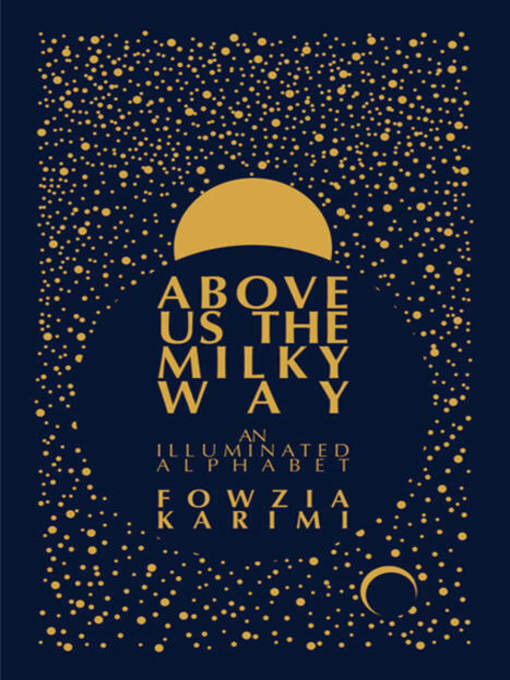
Above Us the Milky Way
An Illuminated Alphabet
کتاب های مرتبط
- اطلاعات
- نقد و بررسی
- دیدگاه کاربران
نقد و بررسی

January 6, 2020
Karimi’s inventive, allegorical debut renders a family’s wartime emigration through a polyphonic mix of voices and genres along with evocative color illustrations and photographs. With a newly elected government dropping bombs on civilians, Father finds out he’s on a list to be arrested. Mother visits a soothsayer for guidance and is told they will flee their unnamed country for a new land. Heeding the prophecy, Mother and Father depart with their five daughters and squeeze into a small apartment. The unnamed sisters, along with their mother and father, alternate the narration, giving definition to their new lives through alphabetical chapters (such as H for “Home. What we carried with us no matter how often we moved, who and what we left behind”). After Mother and Father find jobs, the family moves into a house, leaving the sisters to fight among themselves until Mother encourages them to reflect on a spirit world inhabited by relatives who didn’t survive the war, which Karimi alludes to with haunting drawings of demons and beheaded men juxtaposed with peaceful, happy family photos. Karimi’s steady pace and loosely defined setting will allow readers to share in the characters’ dreams and visions of their “first land.” Fans of Lost Children Archive will love this.

Starred review from February 1, 2020
A semiautobiographical debut by author/illustrator Karimi offers the illuminated fragments of one family's memories as they emigrate from Afghanistan to the United States. "In the beginning," Karimi states in the early pages of this saturated, elliptical novel, "the taking and the killing was not particular, not honed. They took those who did not look right, who walked askew, who spoke the wrong words in the wrong place to the wrong individual....Later, they had names, they had addresses." It is 1980, and the Soviet army has invaded Afghanistan, ushering in an era of paranoia, reprisal, state-sponsored torture, and bloodshed. A man has been denounced by a colleague, or perhaps total stranger, forced to recite a list of "fellow collaborators" on live television. The patriarch of the family at the center of this book's spiral constellation of memories, fables, illustrations, and evidence is on the list. Facing almost certain detention, and probable death, the father, mother, and five daughters flee the country, knowing they will likely never see either their homeland or their beloved extended family again. In America, the five sisters form a new life--one demarcated by before and after--as their father and mother find new work, new friendships, new lives, and new ways of defining themselves both as victims and survivors. Meanwhile, the gruesome harvest of war continues, shivering along the connecting cords of cultural and personal memory to touch every part of the sisters' world. Structured as an illuminated alphabet, Karimi's startling debut pieces together a pastiche of memory, folklore, and multilayered sense impressions with photographs from Karimi's childhood and illustrations of her own making. The result is a sharply etched treatise on the objects of memory--encouraging a perhaps unavoidable comparison to Proust--which sets itself the monumental task of exploring the atrocity of war both as the bombs strike and as they reverberate down through the generations. Because, as Karimi concludes, a "war in one place is like a wound in all," and what else but the letters of an alphabet, or perhaps sisters, could, "give positive form to the formless" by being "forever in two places at once: bound to their fixed positions--for who could reorder the sequence of an alphabet?--and leaving their posts to form this...word." A novel powerful in both its beauty and its uncompromising horror whose themes are as sadly timely as they are eternal.
COPYRIGHT(2020) Kirkus Reviews, ALL RIGHTS RESERVED.

























دیدگاه کاربران